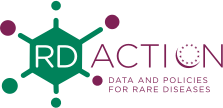Bulgaria
Visual Recap
Contributor‘s names
Summary of Rare Disease Activities in Bulgaria*
(Full report accessible below)
Bulgaria was one of the first EU Member States to adopt a national plan/strategy for rare diseases. It adopted its national plan in 2008, to cover a period of five years from 2009-2014. The plan was approved by the Bulgarian Council of Ministers and included 9 key priorities, including the creation of a national register to collect epidemiological data on rare diseases, the expansion of new-born screening programmes, and improved diagnostics for rare diseases. Following the expiration of the NP on 31st December 2013, and despite the creation of a working group to draft the second NP, no plan has yet been adopted and the extent to which the 9 priority areas have been addressed is not clear at present. Although there is strong commitment to implementing the sets of recommendations adopted by the EUCERD -for instance, as evidenced in the passage of Ministerial Ordinance no. 16 in July 2014- there is as yet no national registry for rare diseases (although individual disease registries exist). Bulgaria has, however, by this aforementioned Ministerial Order, approved a formal policy for the designation of centre of expertise – 11 are currently designated, 2 per million inhabitants.
Newborn Screening programmes have been in place since 1979 and cover 3 rare diseases (Phenylketonuria, Congenital Hypothyroidism, and Congenital adrenal hyperplasia). Diagnostic tests are available for 84 diseases and 34 genes (not including panels), and cross-border testing for rare disease is reportedly possible when no test is available in-country, and when approved by a commission.
Bulgaria has 6 separate HealthCare Providers included as full members of 5 European Reference Networks. The aforementioned Ministerial Ordinance No.16 also addresses the issues of Clinical Practice Guidelines in Bulgaria, seeking to organise collaboration between different medical treatment facilities to ensure the continuity of quality treatment throughout a patient’s life: this has a specific caveat, which ensures the perpetuation of care for rare disease patients.
The Information Centre for Rare Diseases and Orphan Drugs, ICRDOD, was established by the Bulgarian Association for the Promotion of Education and Science. It is a non-governmental, non-profit organisation, which operates a helpline, staffed by volunteers. Bulgaria does not currently have any specific programmes or projects to fund or facilitate rare disease research. Around 20 OMPs with a European Union marketing authorisation are available in Bulgaria, and there are measures in place to facilitate access to OMPs for patients (e.g. the Institute for Rare Diseases has researched and elaborated a multi-criteria decision analysis value measurement model to access and appraise orphan drugs).
Bulgaria State of the Art Report 2016
*NB – The findings and conclusions in this report are those of the contributors and validating authorities, who are responsible for the contents; the findings and conclusions do not necessarily represent the views of the European Commission or national health authorities in Europe. Therefore, no statement in this report should be construed as an official position of the European Commission or a national health authority
Information supplied by the Bulgarian SOA Data Contributing Committee:
- Competent National Authority – Rumen Stefanov
- Orphanet National Representative – Annick Rothschild
- National Patient Alliance Representative – Vladimir Tomov





























